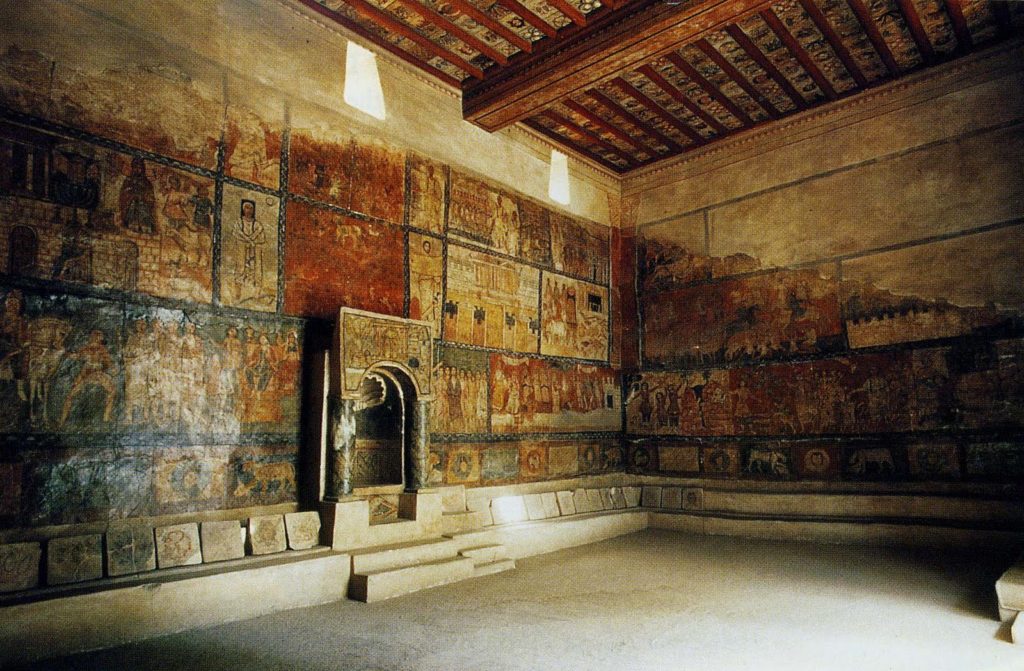Hey Church!
When Solomon’s Temple was destroyed and the people of Israel were exiled to Babylon in 586 BCE, faithful Jews began to gather together in worship-houses called synagogues (literally “assembly”). Since it was against the Law to offer sacrifices on foreign soil, and without the proper and necessary provisions of the Temple (altars, veils, priests, etc.), services in synagogues centered, instead, on prayer. It was the first departure from the sacrificial system of Moses in 400 years!

It is in the structures of that new era of Jewish worship that we begin to see the first seedlings of our own Christian church services. Jesus and many of His early followers were devout Jews who continued to follow the customs of daily prayers, weekly fasts and synagogue meetings, and fellowship meals in homes after their conversion. Evidence from first and second-century texts, including parts of the New Testament, suggests that when the first Christians formed their own worship gatherings (i.e. church services), they were virtually identical to the services of their Jewish heritage, but with two major differences: namely, that Jesus was the fulfillment of the Temple (in whose body each one shared in faith and communion, such that they too became temples of the Holy Spirit) and that the day of assembly was changed from the Jewish Sabbath (Saturday) to the Lord’s Day, the day of Jesus’ resurrection (Sunday).
Following is the basic content and order of worship in the synagogue.
- Call to worship: the Shema. “Hear O Israel! The LORD our God, the Lord is one.”
- Prayers: 18 benedictions and petitions.
- Readings from the Torah.
- Readings from the Prophets and Histories.
- A sermon or discussion based on the readings.
- Psalms, prayers, and the benediction of Aaron (Num. 6:23-27)
It is worth noting that many of the above readings, chants, and prayers were actually sung throughout the course of the service. Likewise, music would play an important role in the Church. Christians added some elements, such as readings out of the teachings of the Apostles, the Lord’s Prayer, and the collection of offerings for works of mercy. But it’s interesting that even before their fulfillment in Jesus, the Temple and its sacrifices were no longer the culminating, central focus of Jewish worship. The synagogues in exile, as in churches across the earth today, rightly prioritized the Word of God and prayer in their meetings.
What we do on Sunday mornings is a precious inheritance that has been passed down to us from the first generation of Christians. Cherish and rejoice in it! Secondly, the Word of God and prayer are two of the primary means of God’s grace to us, as prescribed in Scripture. Come prepared to receive both (and to give both, as the Spirit leads). Lastly, no offering of worship is too big for God. The first Christians met in synagogues under threat of punishment or death, after preparation including at least two days of fasting (every week!), twice-daily prayers, and strict observance of the Christian Sabbath (not a 70-minute service but 24 hours). And here’s the kicker: they did it all with deep, authentic joy!
So, let us bring Him our very best, most costly worship this Sunday and resolve not to take our meeting together this Lord’s Day as anything less than a precious gift of God’s grace!
Your brother,
Ryan

